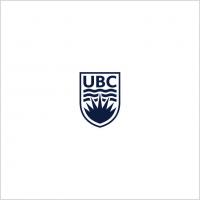Established in 1908, the University of British Columbia is an open research university. Based on the founder of the university, Henry Marshall Tory, a medal of his name was brought into existence in 1941. Recently, the university is recognized as the most international university in North America. It has a motto that says, “It is Yours”. This motto was declared in 1915 and commits to support innovation of ideas, discovery, and learning.
The motive is to encourage the students and create new concepts that bring remarkable changes in the world. By the 20th century, the university began to offer a degree in the field of nursing, agriculture, and engineering. Also, it introduced the American model of specialization and a research thesis.
Located in Point Grey, the university comprises of two campuses, one in Vancouver and the other in Okanagan. The main campus is in Vancouver and is spread across 400 acres of land. The campus is covered with greenery all over. It houses some popular centers like the Chan Centre for Performing Arts, Centre for Interactive Research in Sustainability, UBC Welcome Centre and UBC Centre for Plant Research.
A few of the departments that are found at the campus include the Faculty of Arts, Faculty of Dentistry, Faculty of Law, and Faculty of Science. Okanagan Campus is known to be home to the center of research and learning. Both campuses organize many cultural activities and events.
The university offers undergraduate degree programs, postgraduate degree programs, joint academic programs, exchange programs, and distance education programs. A wide list of subjects incorporates under these programs that give students the opportunity to choose among the various subjects according to their area of interest.
The list includes Applied Science, Architecture, Law, Medicine, Dentistry, Philosophy, Anthropology and Ancient Culture, Religion, and Ethnicity. Moreover, the students are guided under expert professionals that provide basic knowledge and practical experience. Also, the students are given a chance to understand the curriculum of different universities and learn many other things under the student exchange program. In addition, the university is visited by experienced faculty that takes the students to the work field for exposure.
UBC's academic activity is organized into "faculties" and "schools".UBC has twelve faculties at its Vancouver campus and seven at its Okanagan campus.UBC Vancouver has two academic colleges: Interdisciplinary Studies and Health Disciplines, while UBC Okanagan has a College of Graduate Studies. At the Vancouver campus, the Faculty of Arts, which dates back to the 1915 Fairview Campus, is the largest faculty with twenty departments and schools. With the split of the Faculty of Arts and Science in 1964, the Faculty of Science is the second largest faculty with nine departments.
The Sauder School of Business is UBC's Faculty of Commerce and Business Administration. The School of Architecture offers a program accredited by the Canadian Architectural Certification Board at the bachelor level (B.Arch.) and the master's level (M.Arch.).As of December 2012, a new school was created: UBC Vancouver School of Economics in conjunction with the Sauder School of Business.
In 2014, UBC created a new "International Programs" designation separate from the traditional definition of a faculty. To accompany this designation, the university created Vantage College to allow international students who do not meet the English language requirements for general admission to enter the university's transition program.
UBC stands out among the top universities in the world for making a global impact.
The Times Higher Education (THE) Impact Rankings assess universities’ social and economic contributions through their success in delivering on the United Nations’ Sustainable Development Goals (SDGs). The SDGs address global challenges related to poverty, inequality, climate, environmental degradation, prosperity and peace, and justice. UBC is the only institution to rank number one globally for two different SDGs: Climate Action and Life Below Water.
For 2020, UBC ranks first in Canada overall and seventh globally out of more than 850 participating institutions from 89 countries, based on its contributions through research, outreach, and stewardship.
1st in Climate Action
UBC ranks number one in the world for taking urgent action to combat climate change and its impacts. UBC’s research on climate change, the use of energy, and preparations for dealing with the consequences of climate change are world-leading.
1st in Life Below Water
UBC ranks first in the world for generating new knowledge and informing solutions that can help to conserve and sustainably use the oceans, seas, and marine resources. More than three billion people depend on marine and coastal biodiversity.
3rd in Life On Land
UBC is tied for third place globally and ranks number one in Canada for this SDG. It recognizes UBC’s contribution to sustainably managing forests, combating desertification, halting and reversing land degradation, and halting biodiversity loss. Good stewardship is vital to maintaining fragile habitats and ecosystems.
1st in Canada for Responsible Consumption and Production
UBC tops the rankings in Canada for its role in promoting resource and energy efficiency, sustainable infrastructure, and providing access to basic services, green and decent jobs and a better quality of life for all.
1st in Canada for Affordable and Clean Energy
UBC ranks number one in Canada for its work around ensuring access to affordable, reliable, sustainable, and modern energy.
















